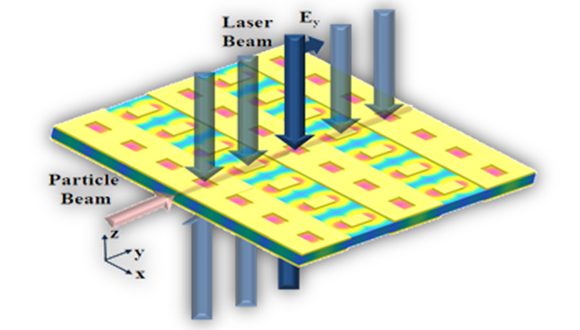Funding agency: NSF-BSF
Subject: Accelerating particles using intense laser beams in order to generate ultra-short pulses of radiation PIs: Jacob Scheuer, School of Electrical Engineering, Tel-Aviv University. Robert Byer, Department of Applied Physics, Stanford University.
Particle accelerators are a critical scientific and industrial tool in many fields, from probing the structure of matter at its fundamental levels to industrial radioisotope production, medical radiation therapy, and security scanners. In the past two years, the first demonstrations have been conducted of a revolutionary new approach that uses the fabrication methods of the microchip industry combined with modern lasers to greatly shrink the size and cost of particle accelerators. This opens the door to creating a future generation of miniaturized “accelerator on a chip” devices that could be used to produce pulses of radiation on the unprecedently short time scales shorter than one millionth of a billionth of a second. Such accelerators could open new avenues of scientific research, including the potential for making “molecular movies” that reveals the inner workings of some of nature’s fastest events.
The major goal of our research program is to advance the development of accelerator-on-a-chip science and technology, using modern tabletop lasers for electron acceleration in specially designed nano-structures for shaping and intensifying the acceleration force. By harnessing the recent advances in nanotechnology on one hand and the strong electric fields produced by high-power laser on the other, we intend to explore the possibilities for substantially increasing the attainable acceleration gradient. The development of such technology can potentially miniaturize the contemporary large particle accelerators to dimensions that could fit into a single room or even a regular table. An attractive application of such devices is the realization of radiation sources at very short wavelengths emitting ultra-short pulses. Such sources have numerous applications in diverse fields such as medicine, diagnostics, security and many more.


